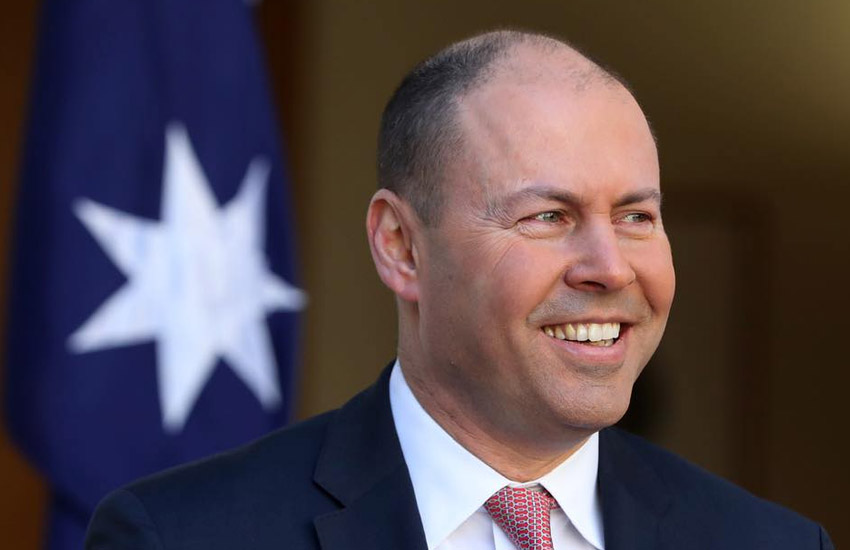Accountants back move to make COVID-19 testing tax-deductible
TaxProfessional accounting bodies have welcomed the federal government’s move to make COVID-19 testing expenses tax-deductible and FBT exempt.

In an address to Australian Industry Group on Monday (7 February), Treasurer Josh Frydenberg confirmed the federal government would look to ensure COVID-19 testing expenses are tax-deductible.
“Since the start of 2022, the Government has secured more than 80 million Rapid Antigen Tests for delivery in January and February for use in Aged Care and other high‑risk settings. Our government is taking action to remove uncertainty around the tax treatment of these tests,” the Treasurer said.
“Today, I’m announcing that we will ensure that COVID‑19 testing expenses are tax deductible for testing taken to attend a place of work, giving businesses and individuals more clarity and assurance.
“We will also ensure that fringe benefits tax (FBT) will not be incurred by employers where COVID‑19 tests are provided to employees for this purpose.”
The move on RATs has been welcomed by CPA Australia, which called for it in its budget submission.
“We welcome the decision to make RATs tax deductible and FBT exempt. This will help business and employees manage the workplace costs of COVID-19 compliance,” said Elinor Kasapidis, senior manager tax policy at CPA Australia.
“This is good news, and we expect practitioners will want to let their clients know about the changes.”
While CPA Australia backs the decision on RATs, Ms Kasapidis noted that “there are a few traps for the unwary which we’d encourage practitioners to warn clients about at the same time”.
“This decision doesn’t create carte blanche to purchase RATs on the government’s dime. Business and employees still need to jump [through] a few hoops to access this tax relief,” she explained, adding that there must be “a nexus to work to claim this deduction or FBT exemption” as private usage is unlikely to be covered by the legislation.
“Tax agents must take reasonable care to ensure a RAT deduction or FBT exemption is valid. In the case of a business client, they should be mindful of the size and nature of the business. Is the number of RATs purchased proportionate and does it seem reasonably necessary?”
Looking ahead, Ms Kasapidis noted she expects the ATO to be on high alert in respect to unusual RAT expense claims come tax time. For example, an employee who has spent most of the year working from home, but is claiming a deduction for a large number of RATs, may raise suspicions, she flagged.
“The enabling legislation has yet to be enacted, although this may come soon as there aren’t many parliamentary sitting days left before an election is likely to be called. Practitioners should keep an eye out for the legislation, and check the details when it’s published, as well as any ATO guidance which is issued subsequently,” Ms Kasapidis advised.
“The legislation will be backdated to 1 July 2021. Business clients are likely to have records to substantiate their claims, however, employees who have previously purchased RATs may not have held onto receipts. This is an opportunity to remind clients of the importance of good record keeping.
“Employees may need to be reminded that this tax deduction won’t provide a dollar for dollar refund of the cost of purchasing the RAT, so they will still be out of pocket.”
Tony Greco, general manager technical policy at the Institute of Public Accountants (IPA) also welcomed the government’s move to make COVID-19 tests tax-deductible and FBT exempt, noting that it removes the “uncertainty” being felt by practitioners and their clients.
“We have yet to receive detailed wording of the legislative changes but if his comments are followed through it will remove some of the angst and need for employers to seek professional advice to ascertain whether any of the existing FBT exemptions could apply. The existing FBT rules are antiquated and cannot deal with these new emerging issues and underlies a bigger systemic problem with the FBT regime which is another story for another day,” Mr Greco said.
“It is also good news for employees if they can deduct the cost of procuring RATS for work purposes as this was problematic under existing tax rules.
“What we need to see now is the details to ensure the words match the legislative outcome so that we can get on to more important matters and remove all the uncertainties associated with the cost of procuring RAT’s for both employers and employees.”




